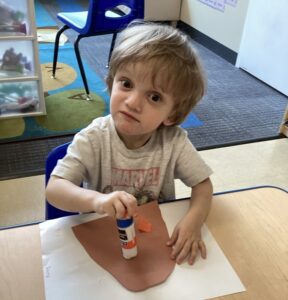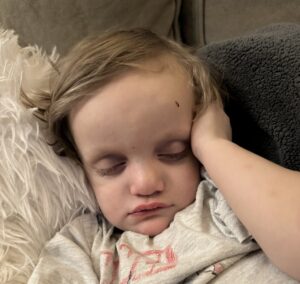How we navigate our son’s response to cold and flu season
We have day care, but when he's sick, we have to make other arrangements

Nearly all parents know that their little kids are walking germ factories. Having our boys in day care and elementary school creates all kinds of exposure to colds, infections, and other ailments. That’s part of the deal and expected, but unfortunately for our son Finley, who has Alagille syndrome, this season is harder on him than it is for most of his peers.
Finley has been in day care since he was about a year old. He was born in January 2021 in the depths of the pandemic, and that, coupled with his Alagille diagnosis a couple months later, made us try to be as cautious as possible during his first year of life. But as my wife and I both work full time, we had to place Finley in full-time day care. And with that, we needed to understand that illnesses come with the territory.
Thankfully for us, as he’s aged, Finley’s condition has remained stable. He has liver disease and pulmonary stenosis, but they aren’t affecting his daily life in a major way right now. He’s a happy, fairly normal child. But when he does catch a bug, it seems to affect him more severely.
Throughout Finley’s life, colds have lingered for extended periods of time. Thankfully, his symptoms eventually become clear enough for us to send him back to day care. But kicking a bug from his system can take forever during the fall and winter seasons.
Last year, it felt as if he were perpetually sick from November through February. There was a stretch of time when we wanted to get his lab tests done, but had to wait for a window when he wasn’t sick so the results wouldn’t reflect that illness. Getting those tests felt impossible as a result.
Managing my son’s sick days
I’m fortunate to have a job that has flexibility and sick time I can use when my children are ill. When Finley is sick, I usually just keep him home and let him rest. But he isn’t the type to lie still and rest; he wants to be active even when under the weather. But I often think, what if I didn’t have sick time and a flexible job?
I see this scenario play out when I drop him off at day care. I see those children who are clearly ill, but their parents probably don’t have the ability to stay home with them. Even though I do have that ability, I cannot work at home when he’s here. I could get some things done, but at his age he needs immediate attention and support.
When he’s sick and I’m using my allotted sick time to care for him, I’m getting behind on my work. It’s the correct decision to keep him home, but that has an impact in more ways than one.
I wish more parents had the ability to stay home and take care of their children when they’re sick. Day care centers are always going to be breeding grounds for illness and germs, but if more kids could stay home for the time they need to get better, others might see a less troubling effect.
For Finley, we know this season is going to be a tough one. He’ll catch bugs and have a slight cough or runny nose for longer than we might’ve expected. Thankfully, outside of cold and flu season, his health has been in a good place. But as with any rare disease, we never know when that might change.
For now, I remind myself that navigating what feels like never-ending colds is preferable to the potentially more severe circumstances that could arise from his Alagille syndrome.
Note: Liver Disease News is strictly a news and information website about the disease. It does not provide medical advice, diagnosis, or treatment. This content is not intended to be a substitute for professional medical advice, diagnosis, or treatment. Always seek the advice of your physician or other qualified health provider with any questions you may have regarding a medical condition. Never disregard professional medical advice or delay in seeking it because of something you have read on this website. The opinions expressed in this column are not those of Liver Disease News or its parent company, Bionews, and are intended to spark discussion about issues pertaining to liver disease.










Leave a comment
Fill in the required fields to post. Your email address will not be published.